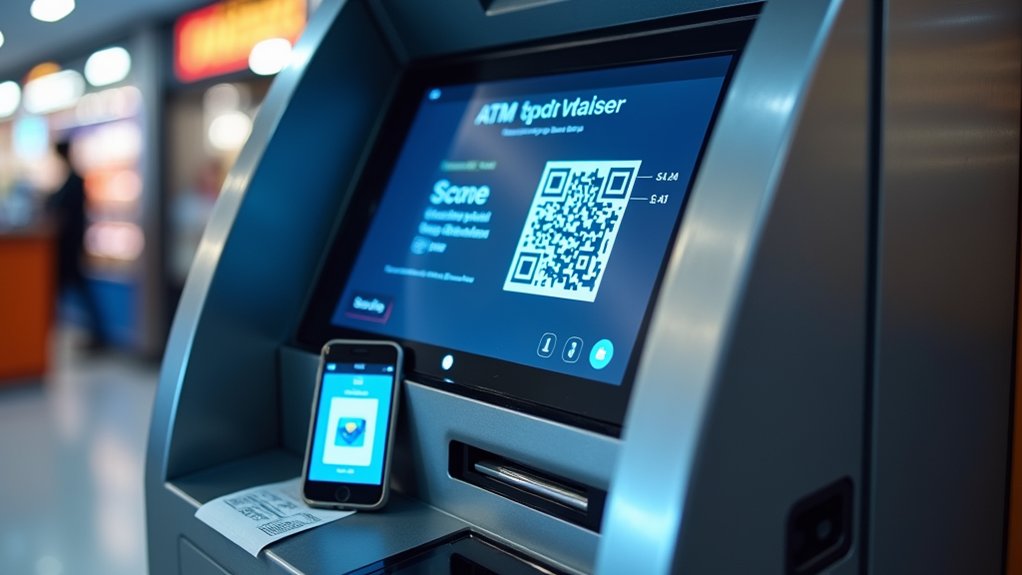Paying someone in cryptocurrency involves selecting either an exchange-based method, requiring KYC compliance and incurring a 1% spread on non-stablecoin transactions, or a self-custody solution that offers greater autonomy. The sender must specify the recipient's wallet address, select a cryptocurrency, and authorize the transaction with a digital signature. Network selection affects transaction fees, with Ethereum typically incurring higher costs than Base or Polygon networks. The specifics of batch processing and volatility management become essential for optimizing larger payment operations.

Cryptocurrency transactions, once the exclusive domain of technical enthusiasts, have developed into increasingly accessible payment methods for individuals and businesses worldwide. The process typically follows two primary approaches: utilizing exchange accounts or employing self-custody wallets, each with distinct operational considerations and security consequences for the parties involved in the transfer of digital assets.
Exchange-based payments offer streamlined convenience, allowing users to integrate services like Coinbase or Kraken directly into their payment workflows, selecting from over 300 supported cryptocurrencies that can be automatically converted to recipients' preferred assets. Users may deposit fiat currency through traditional banking channels or purchase crypto directly on these platforms, with the capability to establish recurring payment structures through saved wallet addresses. Signs displaying accepted cryptocurrencies are becoming increasingly common at physical retail locations that support digital asset payments.
These conveniences, however, come with notable factors including the application of a 1% spread on non-stablecoin transactions and mandatory compliance with KYC/AML requirements that apply to both sending and receiving parties. Merchants can receive payments that are automatically swapped into stablecoin before being deposited into their accounts. The process is typically completed by scanning a QR code or entering the recipient's wallet address within specified timeframes to prevent transaction expiration.
Self-custody solutions provide users with decentralized control through connection methods such as WalletConnect, QR code scanning, or wallet extensions, eliminating reliance on third-party authorization. This approach requires particular attention to network selection and associated gas fees, with Ethereum transactions generally commanding higher costs than those executed on Base or Polygon networks.
Users must verify sufficient balance for both the transaction amount and accompanying network fees, while monitoring liquidity pools for tokens with limited trading pairs to guarantee payment validity.
The transaction process itself involves sender initiation through address input, amount specification, and cryptocurrency selection, followed by authorization via digital signature. Corporate entities may implement multi-signature protocols requiring multiple approvals before fund disbursement.
Cross-chain transfers necessitate specialized bridge services, with all participants acknowledging the irreversible nature of blockchain confirmations. Financial efficiency can be maximized through batch processing of multiple small transactions, while stability against market volatility may be achieved through fixed exchange rates during designated payment windows, a consideration particularly relevant for time-sensitive commercial transactions.
Frequently Asked Questions
Are Crypto Payments Taxable?
Crypto payments trigger multiple tax obligations under current IRS regulations.
Paying someone with cryptocurrency constitutes a disposal of property, generating potential capital gains tax for the payer based on the asset's appreciation since acquisition.
Simultaneously, recipients must report the fair market value of received crypto in the capacity of ordinary income.
Additionally, businesses utilizing cryptocurrency for transactions face further compliance requirements, including accurate record-keeping of the asset's value at transfer time, potentially affecting self-employment taxes and business income reporting obligations.
What Happens if I Send Crypto to the Wrong Address?
When cryptocurrency is sent to an incorrect address, the funds are typically unrecoverable due to blockchain's immutable nature.
If transferred to an active wallet, recovery depends entirely on the recipient's willingness to return assets.
Transfers to burn addresses, nonexistent addresses, or wrong networks result in permanent loss, with recovery chances ranging from minimal to impossible.
Prevention strategies include copy-pasting addresses, conducting test transactions, and verifying network compatibility before confirmations, since blockchain transactions lack traditional banking's safety mechanisms.
Which Cryptocurrencies Are Most Widely Accepted for Payments?
Bitcoin remains the most widely accepted cryptocurrency for payments, commanding 65% of all crypto transactions due to its established market presence and incorporation with major retailers.
Ethereum follows with substantial adoption in e-commerce and DeFi applications.
Meanwhile, stablecoins, particularly Tether (USDT) and USD Coin (USDC), have gained significant traction for commercial transactions owing to their price stability and collaboration with payment processors.
How Long Do Crypto Transactions Usually Take?
Cryptocurrency transaction times vary considerably across networks, with Bitcoin requiring 10-60 minutes for initial confirmation and up to an hour for full settlement with six confirmations.
Ethereum processes transactions within 30 seconds to 5 minutes, while Solana offers considerably faster finality at approximately 10 seconds.
Transaction speed depends on network congestion, fee amounts, wallet configurations, and transaction complexity, with higher fees typically accelerating processing during periods of increased blockchain activity.
Can I Reverse a Crypto Payment if There's a Problem?
Cryptocurrency transactions are fundamentally irreversible due to blockchain's immutable design, making payment mistakes generally permanent.
Unlike traditional banking systems, crypto offers no chargeback mechanisms or centralized authority to intervene.
While some platforms may provide limited recourse through smart contracts, escrow services, or dispute resolution processes for centralized exchanges, these constitute workarounds rather than true reversals.
Users must implement preventative measures like address verification and multi-signature wallets to protect against errors, since the responsibility for transaction accuracy falls entirely on the sender.









